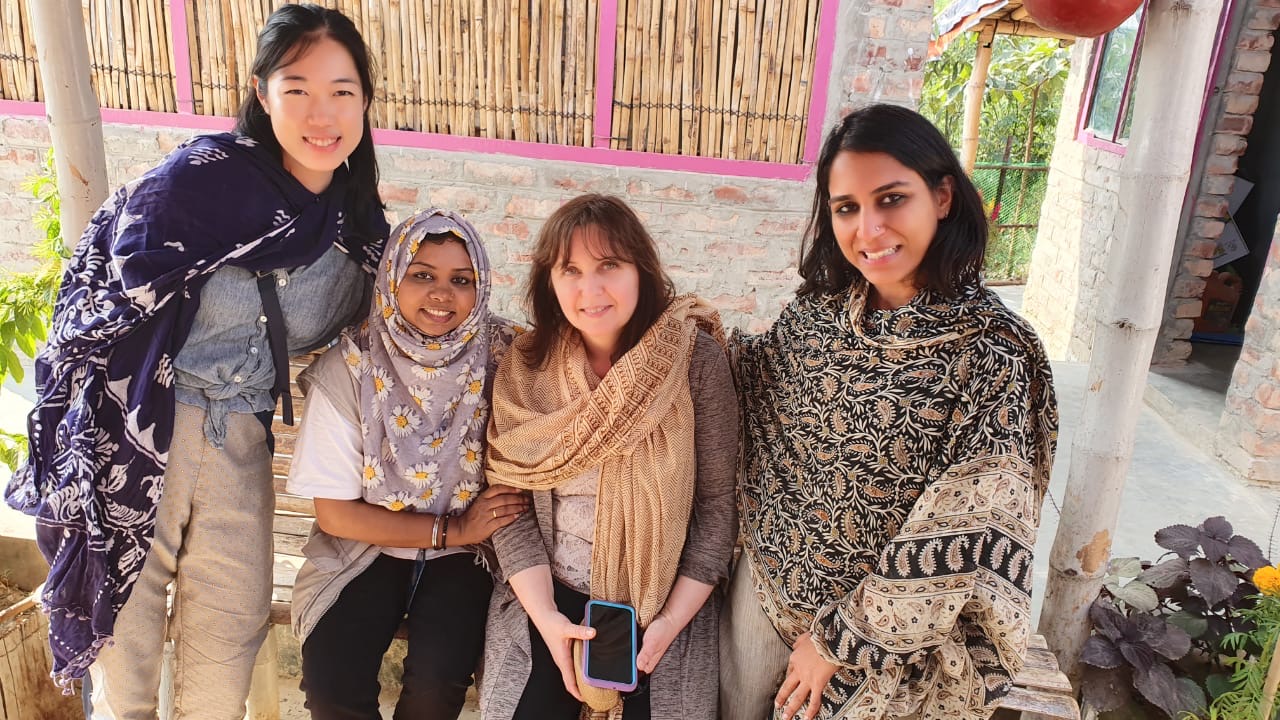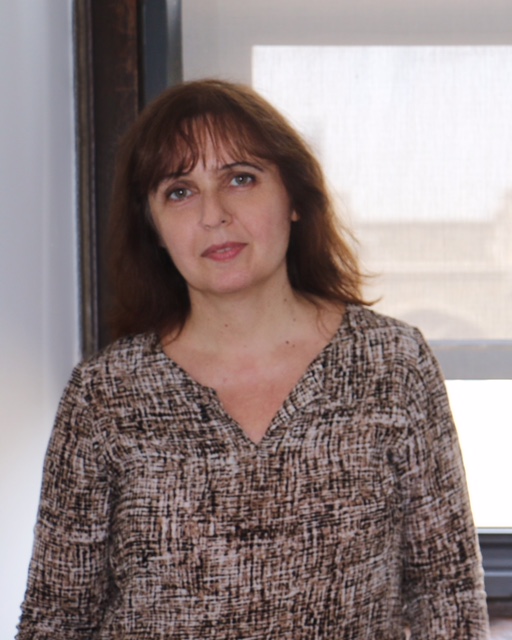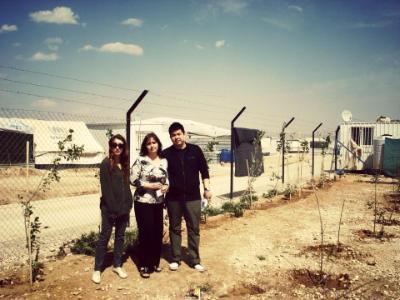The Global Mental Health Lab

The Challenge
War, health epidemics and natural and human-made disasters have forcibly displaced more than 70 million people worldwide — the largest refugee population since World War II. Living in a limbo that could continue for decades, many are so anxious and depressed that they cannot care for themselves and their families, even when food and shelter are provided.
The Charge
Under founding director Helen (Lena) Verdeli, Associate Professor of Psychology & Education, students, researchers and practitioners at TC’s Global Mental Health Lab (GMH Lab) design interventions and programs using evidence-based psychotherapies to prevent and treat mood disorders. The GMH Lab has played a key role in landmark studies involving cultural adaptation, training, testing and scaling-up of interventions of psychotherapy and related services in resource-poor areas around the world. In many of these settings, the psychotherapy providers are non-mental health specialists (primary care staff, community health workers, etc.).
In a Nutshell

Personhood is experienced and expressed within the context of community and social roles, so restoring community cohesion is critical for the recovery of the world’s 70 million displaced people. Hope is the necessary condition to recover.

Our students talk about the unique knowledge, experiences, and skills this work has offered them. They witness horror and pain but also deep and raw love for life and enormous desire of people to improve their lives.
The Approach:
The GMH Lab conducts research and builds local capacity to prevent and treat mental health conditions in under-resourced communities around the world. Its workshops and projects involve locally relevant assessment of mental disorders, cultural adaptation and testing of interventions, and scaling-up of evidence-based practices to inform policy. The GMH Lab has worked with, among others, depressed adults in southern Uganda; war-affected internally displaced adolescents in northern Uganda and internally displaced women in Colombia; distressed patients in primary care in Goa, India; depressed community members in Haiti; and war-affected Syrian refugees in Lebanon.
Past Achievements:
- Verdeli has developed courses and curricula on global mental health research and practice, and evidence-based psychotherapy. Since 2015, the GMH Lab has organized a six-day intensive summer institute with a two-part certificate training curriculum that includes Interpersonal Psychotherapy, Family Engagement and Suicide Assessment & Management, and a Mental Health Humanitarian Intervention Guide. More than 80 graduate-level students from TC, Columbia and other universities, along with some 150 psychologists, psychiatrists, social workers and other personnel worldwide, have attended. Demand for the institute has grown significantly.
- Through collaborative projects, the GMH Lab has used the apprenticeship and training-of-trainers model to train mental health specialists and non-specialists (as well as those in related disciplines) in Interpersonal Psychotherapy (IPT). Verdeli and her team have adapted the content and delivery of this depression treatment, which has demonstrated considerable success in high-income countries, for use in middle- and low-income countries, including Uganda, Lebanon, Haiti, India, Colombia and now Bangladesh and Nepal.
- In 2016, Verdeli led the team that developed the Group IPT manual for global dissemination by the World Health Organization (WHO). WHO recommends IPT as a first-line treatment for depression. The manual has been translated into Russian, Arabic and Chinese (Spanish, Swahili, and French translations are forthcoming) and is available free of cost from the WHO website.
Current Focus:
GMH Lab is currently:
- building local capacity in the delivery of IPT treatment for stateless Rohingya refugees in Bangladesh and earthquake-affected depressed adolescents in Nepal.
- pilot-testing an abbreviated form of the treatment, IPT-3, with American military veterans transitioning to civilian life.
Alumni in High Places:
- Bryan Cheng (Ph.D. ’18, M.A. ’13) completed his postdoctoral fellowship at GMH Lab and is currently its Assistant Director.
- Jessica Keith (Ph.D. ’10) is the head psychologist on the acute inpatient mental health unit at Bay Pines VA hospital.
- Eric Lewandowski (Ph.D. ’11) is Assistant Professor at NYU Langone Medical Center in the Department of Child & Adolescent Psychiatry, Co-Director of the Pediatric Depression and Suicide Initiative, and the founder and Director of the Adolescent Depression Program at NYU Child Study Center.
- Brian Sherman (Ph.D. ’12) is Assistant Professor in the Department of Psychiatry and Behavioral Sciences at the Medical University of South Carolina. He is a recipient of the NIH/NIDA K23 career-development award.
- Eleni Vousoura (Ph.D. ’14) is core Faculty at the American College of Greece and a research scientist at the Women’s Mental Health Clinic at University of Athens Department of Psychiatry Hospital (Eginition).
Partner Organizations:
The Global Mental Health Lab consults and partners with global agencies, academic centers, ministries of health, and NGOs on building systems of care involving psychotherapy, including the World Health Organization; United Nations High Commissioner for Refugees; Ministry of Public Health, Lebanon; the Global Mental Health Program at Columbia University (Verdeli is a scientific Co-Director); International Medical Corps (IMC); Child Protection in Crisis; University of Cambridge, U.K. & the Policy Research Group; Food for the Hungry; and International Rescue Committee among others.
Recent Funders:
- Eleanor Crook Foundation
- Economic and Social Research Council, U.K. (ESRC), GCRF Research for Health in Conflict (R4HC-MENA)
- Grand Challenges Canada
- Medical Research Council, U.K.
- Resilience Center for Veterans & Families, Teachers College, Columbia University
- U.K. National Institute for Health Research (NIHR)
- United Nations High Commissioner for Refugees
- USAID
- U.S. Bureau of Population, Refugees, and Migration
- World Vision International
- Additional gifts and anonymous contributions:
- Clinical Psychology Discretionary Fund
- GMH Lab Endowment
- Lena Verdeli Discretionary Fund